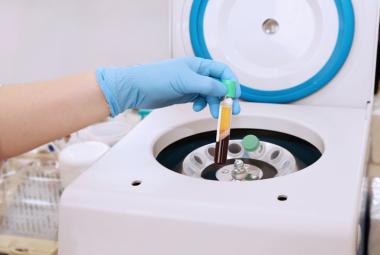What Is Collagen?
Collagen is the most abundant structural protein in the human body, playing a vital role in maintaining the strength and elasticity of skin, bones, muscles, tendons, ligaments, and even mammary glands, where it supports tissue changes during lactation (Tsutsui, 2020). It provides the foundational framework that helps keep our tissues resilient and functional.
Where Does Collagen Come From?
Most collagen supplements are sourced from animals, typically bovine (cow), porcine (pig), or marine origins. The collagen is extracted by boiling skin, bones, scales, or cartilage, and then hydrolyzed—broken down enzymatically—to create smaller peptides that are more easily absorbed by the body (Liu, 2015).
How Is Collagen Used?
Hydrolyzed collagen (also known as collagen peptides) is commonly used to support skin health. Research suggests that collagen supplementation may improve skin hydration, enhance elasticity, and reduce visible signs of aging like wrinkles (Miranda, 2021). Collagen supplements are available via powder, liquid, or capsules.
Collagen and Breastfeeding: What to Know
Collagen is a natural part of the human diet and body, and it’s generally considered safe during breastfeeding. Because it is broken down into amino acids and small peptides during digestion, its impact on breast milk is likely minimal. In fact, studies suggest that moderate changes in a mother’s protein intake do not significantly affect milk protein content (Ballard, 2013).
That said, most studies on collagen focus on its safety and effectiveness in the general population—not specifically on breastfeeding women. Additionally, collagen supplements fall under the category of dietary supplements, which are not regulated for purity or potency in the same way medications are. This raises concerns about potential contaminants or inconsistent ingredient quality (Amer, 2015).
If you choose to take collagen while breastfeeding, opt for reputable brands that conduct third-party testing to verify product safety and quality.
Potential Side Effects
Side effects from collagen supplements are rare but can include allergic reactions, mild gastrointestinal discomfort, or exposure to contaminants in lower-quality products (Al Hajj, 2024). Always check the ingredient list, especially if you have a known allergy to the source animal (e.g., fish or bovine).
Conclusion
Collagen is a structural protein that supports skin, joints, and connective tissue—and may offer benefits during the postpartum period. While collagen itself is not harmful, breastfeeding parents should prioritize high-quality, well-tested products.
Nichole Campbell, MSN, APRN, NP-C
Katie Boatler, RN, BSN
Kaytlin Krutsch, PhD, PharmD, MBA, BCPS
References:
1. Liu, D., et al., Collagen and gelatin. Annu Rev Food Sci Technol, 2015. 6: p. 527-57.
2. de Miranda, R.B., P. Weimer, and R.C. Rossi, Effects of hydrolyzed collagen supplementation on skin aging: a systematic review and meta-analysis. Int J Dermatol, 2021. 60(12): p. 1449-1461.
3. Tsutsui, S., et al., Distinct Expression Patterns of Fibrillar Collagen Types I, III, and V in Association with Mammary Gland Remodeling during Pregnancy, Lactation and Weaning. J Mammary Gland Biol Neoplasia, 2020. 25(3): p. 219-232.
4. Ballard, O. and A.L. Morrow, Human milk composition: nutrients and bioactive factors. Pediatr Clin North Am, 2013. 60(1): p. 49-74.
Examples of third party tested collagen brands:







